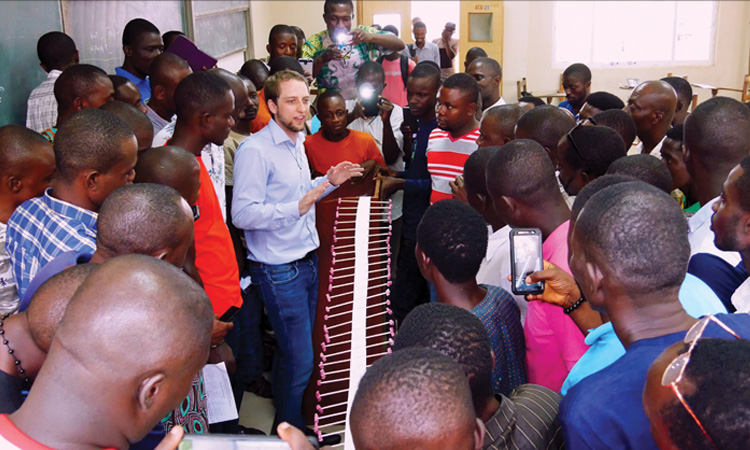Profile
Inspiring a Better Future
Fabian Ruf, the 2023 recipient of the Optica Foundation’s Chang Pivoting Fellowship, is passionate about transforming the world through education.
 Fabian Ruf (center) leads a Helping Hands Network teacher training session in Liberia. [Courtesy of Helping Hands Network]
Fabian Ruf (center) leads a Helping Hands Network teacher training session in Liberia. [Courtesy of Helping Hands Network]
Fabian Ruf remembers his first flight into Monrovia, the capital of Liberia, in 2014. Ruf, then an optics master’s student who had grown up and been educated in comfortable circumstances in Europe, had watched London’s brilliant lights recede at the flight’s outset. Only hours later, looking out the window as he approached Monrovia, “there was just nothing”—scarcely any visible lighting, in the largest city of an African country still recovering a decade after the end of a devastating, 14-year civil war.
…Log in or become a member to view the full text of this article.
This article may be available for purchase via the search at Optica Publishing Group.
Optica Members get the full text of Optics & Photonics News, plus a variety of other member benefits.

